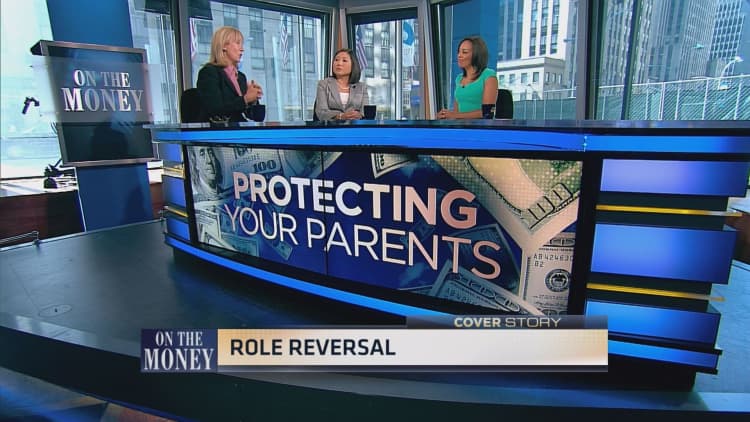With the right planning, financial professionals can be another line of defense against elder fraud.
Older Americans lose an estimated $36.5 billion each year to various abuse schemes, according to a 2015 report from retirement planning site True Link.
A financial pro may be the first to spot the problem. Broker-dealer firms reported to authorities nearly 2,300 cases of suspected senior fraud or exploitation in 2015, according to a new North American Securities Administrators Association analysis of 61 firms. More than half of those cases involved family members or other third parties attempting unauthorized access to seniors' accounts or funds. (See a breakdown below.)

Yet protections and policies vary widely, said NASAA President Mike Rothman. While 95 percent of the firms in the study provide some training on issues like having a trusted contact form or recognizing the signs of financial abuse, only a third of the firms provided training on all five of the senior issues the NASAA asked about.
"The firms are doing a fair number of things, but not all of them together," said Rothman, who is also the Minnesota commissioner of commerce.
Here's how to make the most of your financial advisor, accountant, attorney and other financial professionals to combat elder fraud:
Create a family plan
Well before you need it, have a family discussion about roles and responsibilities should an aging parent someday need help, said Marve Ann M. Alaimo, a partner at Porter Wright Morris & Arthur LLP in Naples, Florida. Knowing who's going to manage the finances — and which pros are in place to help with those tasks — can help limit the opportunities for someone (be it a family member, friend or stranger) to take advantage.
Elder financial fraud cases
| Issue | Percentage of cases reported |
|---|---|
| Third-party abuse/exploitation | 27% |
| Account distributions | 26% |
| Family member, trustee or power of attorney taking advantage | 23% |
| Diminished capacity | 12% |
| Combined diminished capacity and third-party abuse | 12% |
| Fraud | 6.30% |
| Elder exploitation | 5.70% |
| Friend, housekeeper or caretaker taking advantage | <1% |
| Excessive withdrawals | <1% |
Source: SOURCE: North American Securities Administrators Association
"Set out a protocol when everybody is still able to act," said Alaimo, an attorney who specializes in wills, trusts and estates.
Early discussions are also a good opportunity to make sure documents like powers of attorney and health-care directives are in place and that your loved one has a trusted team of professionals, said Suzanne Schmitt, vice president of family engagement for Fidelity.
"In the ideal state, this is all happening proactively," she said.
Vet your advisors
Ask what protections and protocols are in place to spot and handle suspected elder financial abuse, and what training, if any, they have received to recognize the warning signs, Rothman said. In the NASAA study, 81 percent of firms had a designated person responsible to reporting elder-fraud concerns to outside authorities, including state Adult Protective Services, financial regulators and law enforcement.
"You have to know the people you're working with are capable and willing to deal with the problem," Alaimo said.
(Of course, it's also important to check for red flags in a financial professional's background, to make sure they're not someone likely to take advantage of an older client.)
Establish a trusted contact
In the NASAA study, just 41 percent of firms had developed a form for customers to identify a trusted person to contact in the event of an emergency or with concerns about a client — and giving the professional permission to disclose details to that person.
"We're asking firms to put in place the form when you're opening up an account with a new customer," said Rothman. "If you're a consumer, you should think about that too."
Don't assume your financial advisor, accountant, attorney and other pros know who you consider a trusted contact or who has power of attorney, he said. If they don't ask you or offer a form to provide that information, take the initiative to provide it yourself.
Introduce the team
Make sure your trusted family member or friend has the contact details for your financial team. Ideally, you can arrange a meeting between them well before there's a need, Schmitt said. That helps set guidelines for your trusted contact's involvement and can make both parties feel comfortable reaching out with concerns.
Without that prior interaction, it can be trickier for a loved one to intervene down the line. Even if intentions are good, the pro may see that attempt to take control as a red flag, Alaimo said.
"The more you get involved, the more it can look like you're trying to insert yourself in the plan, creating undue influence concerns," she said.






